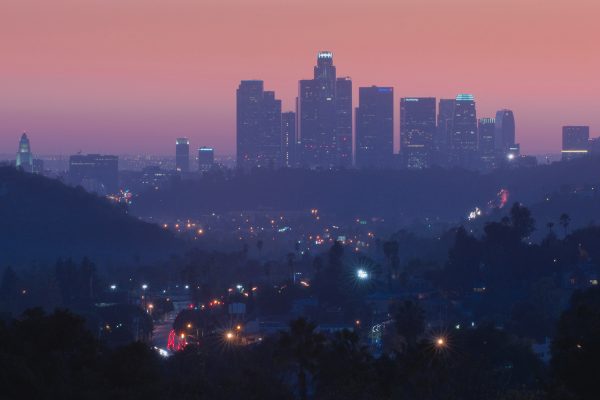
There has probably been a tension between the rural and urban since the first cities. With a little imagination, you could write the entire political history of humanity around it.
In that story, it looks like the chapter about our time will need to describe a shift in power back to the countryside.
Andy Beckett writes in The Guardian:
Instead of a city-style politics based on novelty and compromise — the approach of the Obama and Blair eras — Britain and American now have a politics that feels provincial, old-fashioned, almost millenarian, full of suspicion of outsiders and yearnings that somehow Brexit or a strongman president will make everything all right.
He foresees a similar mood in France next year, where the center-right’s François Fillon will likely vie with the far right’s Marine Le Pen for the support of country pensioners and the unemployed or underemployed workers of the postindustrial north.
Clinton-Trump contest
Reuters reports that a combination of strong turnout for Donald Trump in the countryside and a weak showing by Hillary Clinton in the cities went a long way to deciding the outcome of the presidential election in the United States.
Rural and small-town working-class white voters, who already tended to vote Republican, propelled Trump.
An exit poll taken on election day showed Trump beating Clinton by 26 percentage points among non-city voters.
Urban areas, where black and Hispanic voters are concentrated along with college-educated voters, already leaned toward the Democrats, but Clinton did not get the turnout from these groups that she needed. For instance, black voters did not show up in the same numbers they did for Barack Obama, the first black president, in 2008 and 2012.
Still, Clinton bested Trump by 7 points among city dwellers.
Divides
This summer’s EU referendum revealed a similar divide in the United Kingdom.
In rural England and Wales, more than half of voters opted for Brexit. Major cities, like Bristol, Cardiff, Glasgow and London, voted to stay in the bloc.
America’s election and Britain’s referendum revealed other fault lines: between young and the old, between those with and without a college education, between cosmopolitans and those longing for a sense of national belonging.
But it’s useful to focus on the city-country divide, because the second often has an electoral advantage.
Electoral advantage
Beckett knows that the very thing that makes modern cities vibrant and culturally dominant — “increasing population density and the atmosphere and networks that result from it” — is the reason they are politically underrepresented. The scattered and thinned-out populations of struggling rural and small-town areas distribute their voters much more efficiently through the American and British electoral systems.
I explained here in July why a political party for the 48 percent of Britons who voted to stay in the EU would be doomed: they cluster in metropolitan areas that don’t receive a majority of the seats in Parliament.
Chris Applegate and Tom Phillips calculated that a pro-EU party would win 229 out of 650 seats in the House of Commons. The Brexit camp would have a majority of 192.
Similarly, Clinton won 2.9 million more votes, but Trump triumphed in the Electoral College, which gives an advantage to sparsely-populated states.
Hunker down
It’s probably pointless for liberal urbanites to devote their energies to trying to reform the system.
They can take comfort in the knowledge that politics is about more than elections, writes Beckett. It’s also about prevailing values and lifestyles and about who holds economic power.
However triumphant and impregnable Trump, the Brexiteers and their anti-urban supporters seem now (and will their supremacy last once the consequences of their airy promises start materializing?), it is hard to imagine the big cities losing their enormous economic and cultural clout any time soon.
David Wallace-Wells agrees. “We know the city will be independent and we know the city will also continue to be itself,” he writes in New York magazine: “a theater of freaks and refugees and the restless who were never elsewhere able to feel at home.”
We know that an open and tolerant and progress-minded future still lies before us, even if we have to go it alone and even if that future now looks a few feet smaller at the shoreline.
Electoral politics tend to adjust to social trends in the end. The city will reassert its dominance.
For the time being, Beckett implores urbanites to hunker down: “the city-haters rule for now.”
